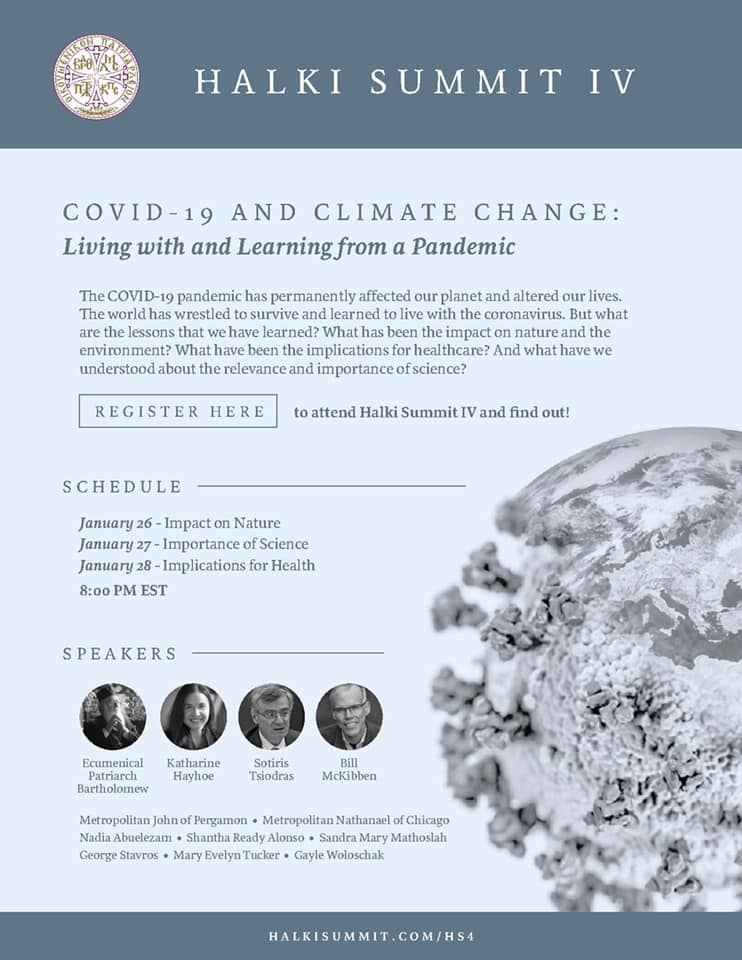
Halki Summit IV met online on 26-28 January 2021 to reflect on COVID-19 and Climate Change. This is the fourth in a series of summits that began in 2012 on the island of Halki. And it is part of a larger program of initiatives by the Ecumenical Patriarchate to raise awareness on climate change and address the need to protect God’s creation. The last event organized by His All-Holiness was held in Athens and on the Saronic Islands in 2018.
This time, the Ecumenical Patriarchate wanted to explore the connections between the pandemic and climate change. The new coronavirus has lowered global carbon emissions. But it has not slowed climate change. At the same time, our response to the pandemic has precipitated the discovery of a vaccine. But it has left the world with a staggering number of deaths.
Much like climate change, the pandemic has permanently affected our planet and altered our lives. The world has wrestled to survive and learned to live with the coronavirus. So we wanted to invite distinguished scientists and economists, theologians and writers, to tell us about the lessons that we have learned. What has been the impact of the pandemic on nature and the environment? What have been the implications for healthcare and the economy? And what have we understood about the relevance and importance of science?
The summit was officially launched by His All-Holiness Ecumenical Patriarch Bartholomew, who set the tone for the three evenings. Other speakers included His Eminence Metropolitan John of Pergamon, who discussed the relationship between religion and science. Tonight, on the final webinar, we will have a special message by Professor Sotirios Tsiodras, who has been so vital for the response of the Greek nation to the pandemic.
Beyond these distinguished speakers, on the first evening, we had the world’s leading economist, Professor Jeffrey Sachs from Columbia University in New York, Professor Mary Evelyn Tucker from Yale University, and Mr. Bill McKibben – perhaps the first person to bring attention to the ecological crisis in the wider society.
On the second night, we had a scientist, a theologian, and an epidemiologist. And on the final evening, we had the Metropolitan of Chicago, along with a psychologist and a pharmacist in the United States Army, who has dealt with other pandemics in Africa, such as Ebola.
The goal of this summit is to raise awareness among our communities, and especially among our churches, about the deep interconnections between humankind and nature. Another goal is to bring down barriers – and clarify misunderstandings – between science and faith, which we have been built up through the centuries and especially over the last year with the emergence of the novel coronavirus. And finally, a critical goal is to recognize how the way that we treat nature directly and profoundly affects the way we treat other human beings. In fact, the way that we respond to the pandemic and to climate change on this earth immediately and essentially impacts on the way we worship God in heaven. We cannot separate between the two. We cannot pray only for the salvation of our souls if we do not also care about the survival of the planet.
This pandemic has given us a chance to correct and to change our ways. It would be a pity if we missed that opportunity and simply expected to return to “life as normal,” which is precisely what led us to the present situation.